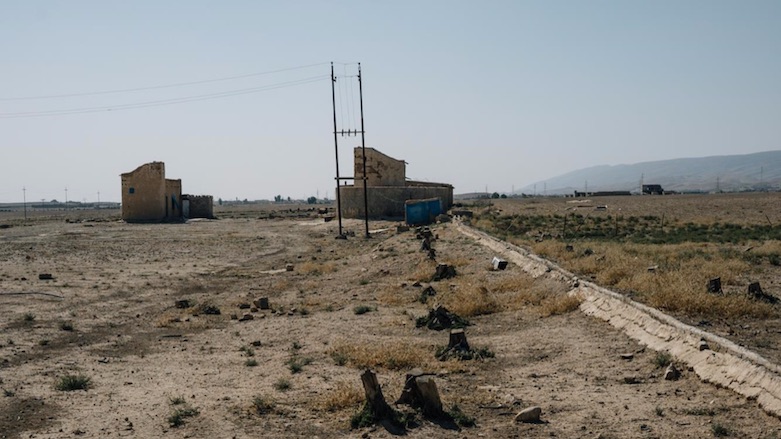Amnesty: Iraq should use oil revenue to fund reconstruction of war-torn areas

ERBIL (Kurdistan 24) – The Iraqi government would be wise to use an expected budget surplus to begin the reconstruction of rural areas affected by the Islamic State (IS) war, specifically the Ezidi (Yezidi) populated region of Shingal (Sinjar), Amnesty International said on Thursday.
An extensive report published by the human rights watchdog on Thursday, titled “Dead Land: Islamic State’s Deliberate Destruction of Iraq’s Farmland,” outlines how the extremist group exploited the country’s agricultural lands to generate revenue and sustain itself.
“As an entity with strong rural roots, IS appeared well aware of farming’s importance to its ‘caliphate’s’ long-term prospects,” the report explains.
“By signalling its ability to deliver basic resources, IS even looked to water as a means of asserting its legitimacy among its new charges, particularly in Mosul, where some residents initially greeted it as a liberating force.”
One of IS’ tactics was to destroy farmland so that residents were forced to rely on the militant group for support. According to Amnesty’s research, the deliberate destruction included the blocking of irrigation wells with rubble.
Despite Iraq declaring a “final victory” against IS late last year, reconstruction of liberated areas has yet to begin with tens of thousands of people still displaced. The influx of those fleeing the extremist group has caused a large financial burden on the Kurdistan Region which has provided shelter and needs for nearly two million people since 2014.
The Iraqi government claims it does not have the finances to begin to restore these regions, but according to the World Bank, oil-rich Iraq has the means to fund much of its own reconstruction.
Richard Pearshouse, a senior Crisis Advisor at Amnesty International, who wrote the report, said Baghdad should implement its recovery plan for war-torn areas of the country to facilitate the safe and voluntary return of displaced persons, especially those who rely on farming.
“Budget analysts have pointed out that, with higher than expected oil prices, Iraq is on track for a budget surplus in 2018 and will be able to fund much of its own reconstruction,” Pearshouse told Kurdistan 24.
“Farmers need urgent help to get back on their feet. Iraq’s government has a reconstruction plan, but they haven’t begun to implement it or fund rural reconstruction in any meaningful sense.”
According to the Amnesty report, the Iraqi government “has an obligation to provide compensation or another form of just reparation to all civilians whose homes, farms and property have been destroyed, including those whose irrigation wells and/or other agricultural infrastructure have been destroyed.”
“Beginning to rebuild Iraq’s battered agriculture would be both just and wise,” Pearshouse affirmed.
Editing by John J. Catherine
